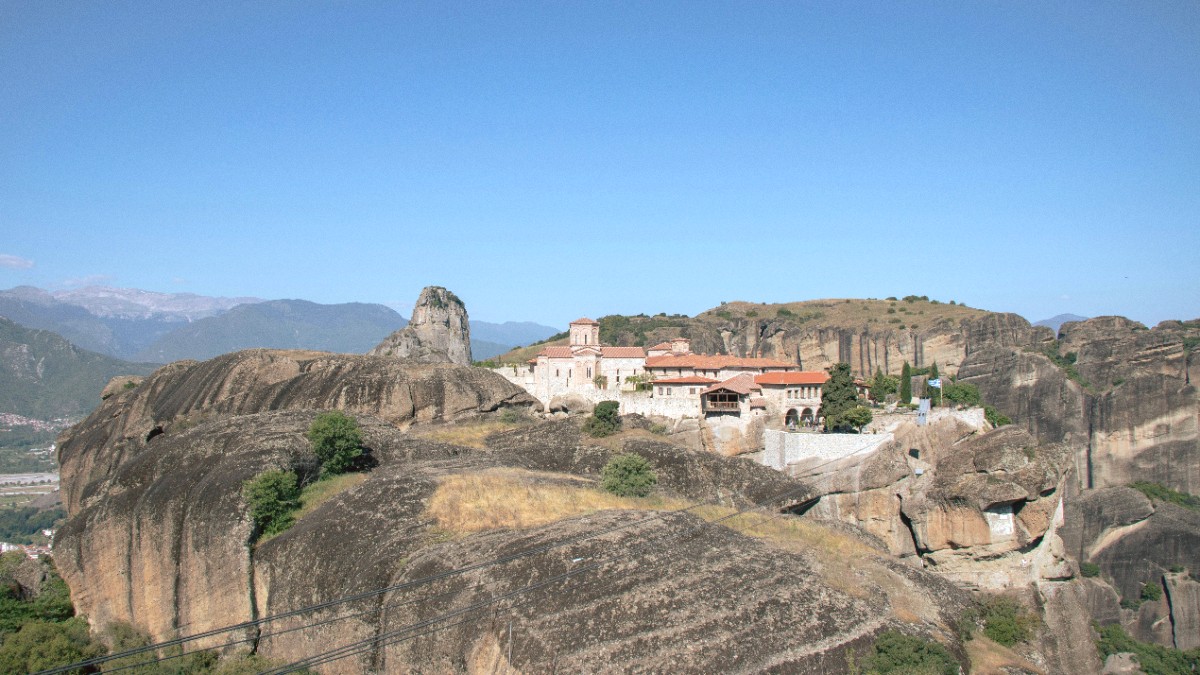
Greece
Meteora is an UNESCO World Heritage site, recognized for both its natural and cultural value. This designation directs adherence to all regulations for preservation. Stay on marked paths and do not disturb wildlife or plants.
Dispose of litter properly in designated bins. Littering is strictly prohibited, especially on hiking trails and around the monasteries. Pack out anything you pack in. Minimize waste.
While Meteora itself might not face acute water scarcity, Greece experiences water stress, notably during dry summer months. Be mindful of your water usage in accommodations, taking shorter showers and turning off taps.
Your visit can leave a positive mark.
Consider carbon offsetting for your flights and long-distance travel to and from Meteora. Many airlines offer carbon offset programs, or you can contribute to reputable organizations that invest in environmental projects.
Support accommodations that implement sustainable practices, like energy efficiency, waste reduction, water conservation, and sourcing local products. Look for tour operators that prioritize small group sizes.
Be polite and courteous in your interactions with locals, monks, and nuns. Learning a few basic Greek phrases shows appreciation. Recognize that monasteries are active religious sites and part of a living tradition.
Always ask for permission before taking close-up photos of individuals, especially monks or nuns. Avoid disruptive photography during religious services or in areas marked as "no photography." Be mindful of privacy and avoid photographing people without their consent.
Choose to eat at family-run tavernas, stay in locally owned guesthouses, and purchase your groceries and supplies from local supermarkets or shops.
When purchasing souvenirs, look for products that are genuinely handmade or locally produced. This supports local artisans and traditional crafts.
Making your travel economically impactful.
Support tourism initiatives that directly involve and benefit local communities. Seek opportunities where your money goes to local families.
When purchasing souvenirs, look for items genuinely handmade or locally produced. This supports local artisans and traditional crafts. Avoid mass-produced items that offer little to the local economy.
Ensuring your revenue stays local.
Choose family-run tavernas.
Book locally owned guesthouses.
Buy groceries and supplies from local shops.
Be aware of practices that might exploit local people or resources. Avoid engaging in activities that seem unethical or exploitative. If donating, do so directly to monasteries or reputable local charities, rather than giving cash to beggars.
Engaging respectfully with local traditions.
Recognize that the monasteries are not just tourist attractions; they are active religious sites and part of a living tradition. Your respect for their ongoing practice is important.
Be polite and courteous in your interactions with locals, monks, and nuns. Learning a few basic Greek phrases shows appreciation. Adhere strictly to dress codes (shoulders and knees covered) for monasteries.
Minding local customs when capturing memories.
Always ask before taking close-up photos of individuals, especially monks or nuns.
Avoid disruptive photography during religious services or in "no photography" areas.
Be mindful of privacy. Avoid photographing people without their consent.
Avoid discussing politics or religion unless invited to do so by locals, then proceed with sensitivity. Greeks have strong national pride; show respect for their history and culture. Avoid comparing Greece negatively to other countries.